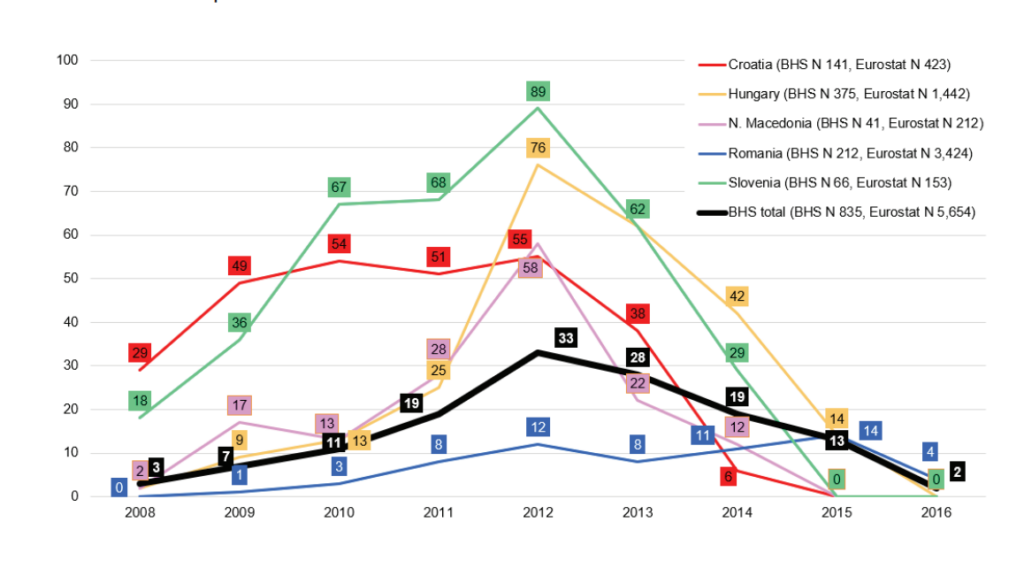Prof. Dr. Anna-Maria Getoš Kalac, Head of Balkan Criminology, and Assist. Prof. Dr. Reana Bezić, Member of Balkan Criminology and Head of the Violence Research Lab, have just published their article on Homicide Research in Southeast Europe in the Yearbook of the Croatian Academy of Legal Sciences.
Their article critically analyses the methodology and practical aspects of conducting criminological homicide research in Southeast Europe. The analysis is based on two major studies of (lethal) violence: (1) the Balkan Homicide Study – a prosecution and court casefile-based study conducted between 2016 and 2019 in Croatia, Hungary, Kosovo, North Macedonia, Romania, and Slovenia, on a total sample of 2,073 cases involving 2,416 offenders and 2,379 victims; and (2) the Croatian Violence Monitor – a court casefile-based study conducted between 2021 and 2023 in four major Croatian cities (Zagreb, Split, Rijeka and Osijek). The discussion covers key aspects of conceptualising, designing and utilising unique data collection instruments, choice of sampling strategies, data representativeness, normative and statistical context data, as well as practical aspects of empirical fieldwork and data analysis. The aim is to transparently and critically analyse the main conceptual, methodological and practical (dis)advantages of both studies as well as (lethal) violence research more generally. The said discussion is rounded up by presenting preliminary findings on the phenomenology of lethal violence in Croatia based on data from the Croatian Violence Monitor.

Thereby the authors contribute to a culturally much more aware criminology of (conducting) homicide research, and thus provide for most recently available original empirical data about the phenomenology of lethal violence. Ultimately, the analysed challenges also highlighted specific regional opportunities for further empirical research in the Balkans with proposals on how these might best be explored in future international and European comparative research undertakings.
